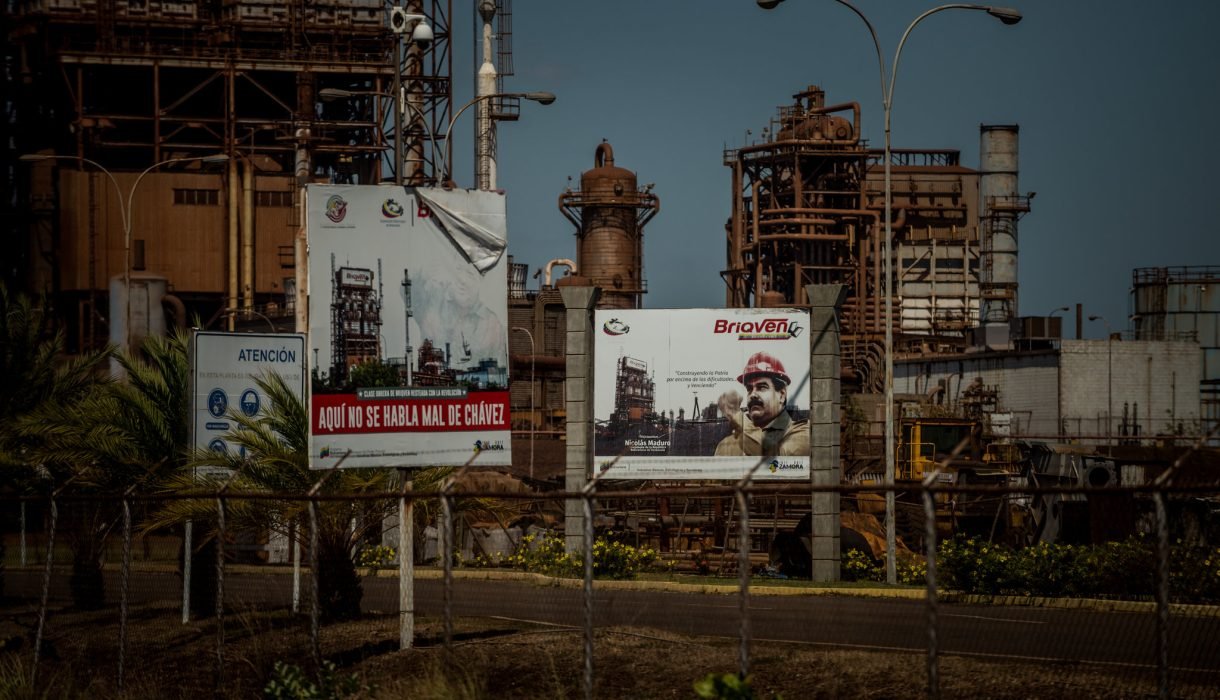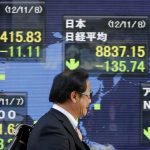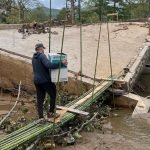
Venezuela’s Economic Turmoil: A Deep Dive into Causes and Consequences
Venezuela’s economic situation is dire, largely driven by internal mismanagement under the Maduro regime and the impact of international sanctions and conflicts affecting oil production. While inflation showed signs of improvement, new pressures could lead to another deep crisis.
The intricate factors contributing to Venezuela’s economic collapse, the impacts of international policies, and emerging trends in its economy. It examines the role of oil production, U.S. sanctions, and the response of the Venezuelan populace to the ongoing turmoil.
Once a prosperous nation, Venezuela has transformed into a case study of economic disaster. With a staggering portion of its population fleeing and its financial systems in free fall, what went wrong? In this post, we’ll dive deep into the complexities behind Venezuela’s journey from wealth to poverty, shining a light on the forces at play both domestically and internationally. It’s not just a story of loss; it’s one of resilience, hope, and unexpected developments.
The Journey from Prosperity to Poverty
Historical Overview of Venezuela’s Economy
Venezuela’s economy has undergone a dramatic transformation over the decades. Once, it was one of the richest countries in the world, largely due to its vast oil reserves. In the early 20th century, oil was discovered, and it quickly became the backbone of the economy. By the 1970s, Venezuela was a leading oil exporter, enjoying a wealth that funded extensive social programs and infrastructure development.
However, this reliance on oil created significant vulnerabilities. The economy became overly dependent on a single commodity. When oil prices fell, the repercussions were severe. The government struggled to adapt, leading to economic instability. The historical context is crucial. It highlights how a nation rich in resources can still face dire consequences if it fails to diversify its economy.
The Impact of Oil Wealth on National Prosperity
Oil wealth initially brought prosperity to Venezuela. The government invested heavily in social programs, education, and healthcare. Citizens enjoyed a high standard of living. But this wealth also had a darker side. As the quote goes,
“The wealth derived from oil blinded us to the necessity of diversification and governance.”
This blindness led to a lack of investment in other sectors, making the economy fragile.
Over time, the oil sector became a double-edged sword. While it generated significant revenue—up to 95% of governmental income—it also fostered corruption and mismanagement. The state oil company, PDVSA, which was once a model for efficiency, became a tool for political patronage. This shift weakened the company and, by extension, the economy.
Key Political Events Leading to Economic Decline
Political events played a pivotal role in Venezuela’s economic decline. The rise of Hugo Chávez in the late 1990s marked a turning point. His government implemented socialist policies that aimed to redistribute wealth. While these policies initially seemed beneficial, they often led to economic mismanagement and increased authoritarianism.
Chávez’s successor, Nicolás Maduro, continued down this path. His administration faced accusations of election manipulation and repression of dissent. The political climate became increasingly hostile, driving away foreign investment and leading to a mass exodus of citizens. Nearly one-third of Venezuelans have left the country, seeking better opportunities elsewhere.
As the political situation deteriorated, so did the economy. Sanctions imposed by foreign governments further exacerbated the crisis. The once-thriving oil industry struggled to maintain production levels. The combination of political instability and economic mismanagement created a perfect storm, plunging the nation into poverty.
The Current State of Affairs
Today, Venezuela’s economy is a shadow of its former self. The country grapples with hyperinflation, food shortages, and a crumbling infrastructure. The reliance on oil has left it vulnerable to external shocks. The recent decline in oil production has only intensified these challenges.
Despite some glimmers of hope, such as a decrease in inflation rates, the overall outlook remains bleak. The government’s inability to manage the economy effectively continues to hinder recovery efforts. The question remains: can Venezuela rise from the ashes of its past prosperity? Only time will tell.
The Current Economic Landscape
The economic situation in Venezuela is complex and troubling. Recent trends show a significant drop in inflation, but the country still faces numerous challenges. In 2024, inflation reached 48%, a stark contrast to the staggering 3,000,000% in 2018. This decline is the lowest inflation rate seen in years. However, the question remains: is this a sign of recovery or just a temporary reprieve?
Recent Inflation Trends and Statistics
Inflation has been a persistent issue in Venezuela. The recent drop to 48% is noteworthy, but it is essential to understand the context. The country has endured years of hyperinflation, which devastated the economy and the lives of its citizens. The inflation rate in 2023 was still a high 200%, indicating that while there is improvement, the situation is far from stable.
Economic reforms have been introduced, but they often clash with the realities of inflation and the black market. The government’s attempts to stabilize the economy are frequently undermined by these factors. As one analyst noted,
“Economic indicators suggest slight improvements, yet the shadows of previous failures loom large.”
Impact of International Sanctions on the Economy
International sanctions have played a significant role in shaping Venezuela’s economic landscape. These sanctions, particularly those imposed by the United States, have targeted the oil sector, which is the backbone of the Venezuelan economy. Over 95% of the country’s exports come from oil. The sanctions have restricted the government’s ability to sell oil, leading to a decline in revenue.
Moreover, the sanctions have created a ripple effect. They have not only impacted the government but also the everyday lives of Venezuelans. With reduced access to foreign currency, the economy has struggled to import essential goods. This has led to shortages and increased prices, further exacerbating the inflation problem.
How the Black Market Has Changed the Landscape
The black market has become a crucial part of Venezuela’s economy. As the official economy falters, many citizens turn to illegal markets for basic necessities. This shift has altered the economic landscape significantly. The gap between the official dollar exchange rate and the black market Bolívar rate has widened, indicating a potential government devaluation of the currency.
In recent years, illegal oil trafficking has surged. Estimates suggest that a significant portion of Venezuelan oil is exported without official acknowledgment. This illicit trade has become a lifeline for many, but it raises questions about sustainability. How long can this underground economy support the nation?
Additionally, the reliance on the black market has led to increased dollarization. Many Venezuelans are converting their Bolívars to dollars, which has driven the dollar’s value up against the local currency. Recently, the exchange rate surpassed 100 bolívares per dollar, compared to 66 previously. This shift highlights the desperation of the population and the failure of the official economy.
Despite the challenges, there are signs of potential stabilization. Recent reports indicate a shift towards recovery, but pervasive corruption and external pressures continue to threaten any progress. The road ahead is fraught with uncertainty, and the resilience of the Venezuelan people will be tested as they navigate this tumultuous economic landscape.
The Role of Global Politics in Venezuela’s Crisis
The crisis in Venezuela is not just a local issue; it is deeply intertwined with global politics. The actions of foreign governments, particularly the United States, have significantly shaped the landscape for Venezuela. Understanding this relationship is crucial to grasping the full scope of the crisis.
How U.S. Sanctions Have Shaped the Landscape for Venezuela
U.S. sanctions have had a profound impact on Venezuela’s economy. Under Donald Trump’s administration, these sanctions were intensified, targeting the oil sector, which is the backbone of Venezuela’s economy. The sanctions aimed to cripple the Maduro regime by cutting off its primary source of revenue. As a result, the U.S. reduced its oil purchases from Venezuela to around 250,000 barrels a day. This drastic reduction has led to a significant decline in the country’s oil production and revenue.
But why do these sanctions matter? They not only limit Venezuela’s ability to sell oil but also affect its capacity to import essential goods. The sanctions have created a vicious cycle of economic decline, leading to increased poverty and instability. As the quote goes,
“The geopolitical landscape dictates economic viability, not just local governance.”
This statement rings true in the case of Venezuela, where external pressures have dictated the country’s economic fate.
Collaborations Between Venezuela and Other Countries’ Oil Sectors
Despite the sanctions, Venezuela has sought collaborations with other countries to sustain its oil production. Countries like Russia and Iran have stepped in to fill the void left by the U.S. sanctions. These collaborations have allowed Venezuela to maintain some level of oil production, albeit at a reduced capacity. For instance, Chevron, a major player in the oil industry, received authorization from the Biden administration to partner with Venezuela’s state oil company, PDVSA. This partnership accounted for about one-quarter of Venezuela’s oil production.
However, the landscape is changing. Recent revocations of licenses and the threat of new sanctions could drastically reduce Venezuela’s output. Major oil firms, including Repsol and Total, have been ordered to cease operations, further threatening the country’s already fragile economy. The reliance on foreign partnerships highlights the precariousness of Venezuela’s situation. Can these collaborations be sustained in the face of increasing geopolitical tensions?
The Significance of Geopolitical Tensions on Oil Prices
Geopolitical tensions play a critical role in determining oil prices. The ongoing conflicts and rivalries between nations can lead to fluctuations in oil supply and demand. For Venezuela, this means that its oil exports are not only influenced by its internal policies but also by external factors. The sanctions on Russia, for example, have inadvertently increased demand for Venezuelan crude oil, which constitutes over 95% of the country’s exports.
However, this situation is fraught with uncertainty. The widening gap between the official dollar exchange rate and the black market Bolívar rate indicates potential government devaluation, which could lead to renewed hyperinflation. The Venezuelan economy is caught in a web of international politics, where every decision made abroad can have immediate consequences at home.
In conclusion, the role of global politics in Venezuela’s crisis cannot be overstated. The interplay between U.S. sanctions, international collaborations, and geopolitical tensions shapes the country’s economic landscape. As the situation evolves, the question remains: how will Venezuela navigate these turbulent waters?
Future Prospects: Hope or Despair?
The future of Venezuela’s economy is a topic of intense debate. With a history marked by both wealth and poverty, the question remains: can the nation rise from its current struggles? As analysts look ahead, several potential scenarios emerge. Each scenario carries its own implications for energy spending, investment, and the innovative responses of the local populace.
Potential Scenarios for Venezuela’s Economy
Venezuela’s economic landscape is fraught with uncertainty. Forecasts suggest varying outcomes based on political and economic shifts. Here are a few scenarios that could unfold:
- Gradual Recovery: Some experts believe that if political stability is achieved, Venezuela could see a gradual recovery. This would require significant reforms and international support.
- Continued Decline: If the current regime maintains its grip on power, the economy may continue to deteriorate. This could lead to increased poverty and further emigration.
- Unexpected Boom: A sudden spike in oil prices or a breakthrough in international relations could provide a much-needed boost. However, this is a risky gamble given the historical volatility.
Each of these scenarios hinges on the political climate and the global economy. The implications of energy spending and investment are critical. Venezuela’s oil industry, which has been the backbone of its economy, faces numerous challenges. The state oil company, PDVSA, has suffered from mismanagement and corruption. Without foreign investment and expertise, the country may struggle to maintain production levels.
The Implications of Energy Spending and Investment
Energy spending is a double-edged sword for Venezuela. On one hand, investment in the oil sector could revitalize the economy. On the other hand, the current regime’s approach to managing these resources raises concerns. For instance, the recent revocation of Chevron’s license to operate in Venezuela could drastically reduce oil output. This poses a grave risk to an already fragile economy.
Moreover, the widening gap between the official dollar exchange rate and the black market Bolívar rate indicates an anticipated government devaluation of the currency. Such a move could lead to renewed hyperinflation, further complicating the economic landscape.
Innovative Responses from the Local Populace
Despite the dire circumstances, the spirit of innovation thrives among the Venezuelan people. Many are finding creative solutions to navigate the crisis. From informal markets to community-driven initiatives, locals are adapting to their environment. As one observer noted,
“Amidst despair, the spirit of innovation might just be Venezuela’s best export.”
These grassroots efforts are crucial. They not only provide immediate relief but also foster a sense of community and resilience. The local populace is proving that even in the face of adversity, hope can flourish.
Given its tumultuous history, Venezuela’s future remains uncertain. The interplay of political dynamics, energy investments, and local innovation will shape the country’s trajectory. While challenges abound, there are also opportunities for recovery. The resilience of the Venezuelan people, coupled with potential shifts in the global economy, could pave the way for a brighter future. However, without significant changes, the risk of despair looms large. The world watches closely as Venezuela navigates this complex landscape, hoping for a turn towards stability and prosperity.
TL;DR: Venezuela’s economic situation is dire, largely driven by internal mismanagement under the Maduro regime and the impact of international sanctions and conflicts affecting oil production. While inflation showed signs of improvement, new pressures could lead to another deep crisis.
BidenAdministrationPolicies, InflationTrends, VenezuelaEconomy, MaduroRegime, OilIndustryImpacts, EconomicCrisis
#InflationTrends, #EconomicCrisis, #VenezuelaEconomy, #MaduroRegime, #BidenAdministrationPolicies, #OilIndustryImpacts,#VenezuelaEconomicCrisis, #OilSanctions, #Hyperinflation, #MaduroRegime, #PDVSA, #BlackMarketEconomy, #LatinAmerica, #GlobalRecession, #EconomicCollapse, #VenezuelanPeople, #InflationCrisis

